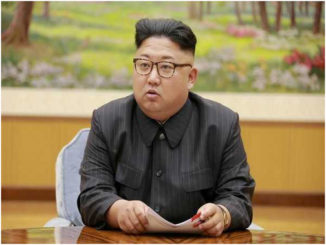
One reason for widespread political and bureaucratic corruption is that the punishment for such offences is light and, therefore, it does not serve as a deterrent. Punishment for corruption must include confiscation of all illicit wealth and assets, and also a life sentence for those convicted of serious graft. There should be no discretion in this matter”, says the author.
By Joginder Singh
Iused to be a movie buff and would be easily moved by emotive scenes, songs and dialogues. The 1957 classic, Do Aankhen Barah Haath, remains one of my favourite films; Aye malik tere bandey hum, one of the most powerful songs from the film, still has an impact on me. The song exhorts the common man to do good deeds for India. But a friend sent me different connotation: Through the song, the common man is asking God about the sins that he may have committed as a result of which his country is now being governed by corrupt and dishonest leaders. Then, the common man pleads with God to contain, if not eliminate, all such corrupt people. When it comes to matters of integrity and governance, Indians are at the bottom of the list. It takes decades for our court cases to be taken to their logical ends; conviction takes even longer, so much so that by the time the court hands down the sentence, either victim or the perpetrator is no more. Take the latest matter against J Jayalalithaa, who was recently stripped of her position as Chief Minister of Tamil Nadu, after being convicted in a disproportionate assets case. The case was registered in 1996, the chargesheet filed in 1997, but the judgement came only on September 27 of this year. The special court in Bangalore, which was hearing the Rs 66.65-crore disproportionate assets case against Jayalalithaa and her three associates, N Sasikalaa, J Elavarasi and VN Sudhakaran, found all four guilty. They were convicted under Section 120(B) of the IPC (criminal conspiracy), Section 13(1) of the Prevention of Corruption Act (criminal misconduct by public servants) and Section 109 (abetment). The former Chief Minister has been sentenced to four years in jail and slapped with Rs 100 crore fine. Jayalalithaa’s case had been transferred by the Supreme Court to the Bangalore special court in 2003 after a petition was filed by a DMK leader and then Janata Party chief Subramanian Swamy. They had expressed doubts over the conduct of a fair trial in Tamil Nadu. The September 27 judgement effectively bans Jayalalithaa from the electoral arena for the next 10 years. According to the Representation of the People Act, 1951, a convicted person cannot contest any election for six years, from the date of completion of sentence. However, it is up to the courts to stay the sentence and conviction, pending the consideration of appeal. Previously, the accused had challenged the case with three writ petitions. But on October 1, 1997, the Madras High Court dismissed those petitions, including one challenging the sanction granted to the prosecution by the then Governor of the Tamil Nadu. By 2000, all but 10 witnesses had been examined. Yet, it took another 14 years for the remaining witnesses to testify. This only shows how the judicial system is twisted in favour of the accused while the victims – in this case, the general public defrauded by Jayalalithaa – continue to suffer. Yet, Jayalalithaa is not the only Chief Minister to have been put behind bars. Former Chief Ministers of Haryana, Jammu & Kashmir, Bihar and Jharkhand have also shared a similar fate. Similarly, a whole bunch of former Union Ministers and even one former Prime Minister have been hauled by the judiciary on corruption charges. One reason for widespread political and bureaucratic corruption is that the punishment for such offences is light and, therefore, it does not serve as a deterrent. Punishment for corruption must include confiscation of all illicit wealth and assets, and also a life sentence for those convicted of serious graft. There should be no discretion in this matter. Moreover, our lawmakers must seriously consider changing the rules so that the onus is on the accused to prove his or her innocence. It is ridiculous to expect that a common man will run around the courts for years to testify against powerful politicians. As for the investigating agencies, they have no magic wand with which they can produce evidence against the accused. The following statement by a judicial officer, confirmed repeatedly by the Supreme Court, should serve as a wake-up call to the Government: “The biggest single hurdle which inhibits the citizen from coming forward to help the police is the deplorable conditions prevailing in the courts of law. The lot of witnesses, appearing on behalf of the state against a criminal, is certainly pitiable. More often than not, the case in which he is to appear is adjourned, on one pretext or the other. When ultimately the evidence is recorded, the witness is browbeaten by an over-zealous defence counsel or declared hostile or unreliable by the prosecution. It is a wonder of wonder, that despite these handicaps, we have bold citizens who are willing to depose, at the cost of their life and property.” If India is to end corruption, it should consider the death penalty and life imprisonment for those convicted of graft. The system of appeals must be streamlined. Also, financially-sound people should be made to pay for the duration of their stay in jail. There is no rationale for wasting taxpayers money on them. Why should the common man pay for the boarding and lodging of criminals? But first, the Government must build up investigation and judicial infrastructure, so that no case drags on for more than a year or two. This is vital as no innocent should be allowed to suffer, for any reason whatsoever. This might appear to be a tall order but it is worth trying
(The author is a former Director of India’s premier investigating agency Central Bureau of Investigation {CBI})





Be the first to comment